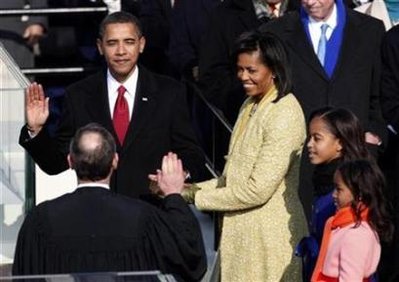This is a tough post and may seem to be out of place with my other discussions on feminist notions (see previous three entries), but some feminists believe that a part of feminism means women loving women romantically (http://tinyurl.com/mdu3o). But a statement like that is not enough to say so this post delves deeper into the overall issue of homosexuality.
Many people have their notions about why people are homosexual:
-
1. They didn’t get enough attention from a mother or a father.
2. Their environment caused them to be gay (e.g., like a domineering mother or a father or a gay uncle).
3. She was sexually abused by men, so she turned to women.
4. She was sexually abused by women, so that’s why she likes them.
5. Homosexuals are born that way.
I don’t claim to know the answer, and I don’t think anyone can say they do; everyone’s situation is different. The defining question though is “Is it a matter of choice or are you born homosexual?” Though I have my own opinion, let me first deal with the arguments that come with the answers to each.
“People have a right to choose whoever they want to love. If that person makes them happy then they should be in a relationship. It doesn’t matter what sex they are. As long as the two consent, what is there for anyone else to say?” Some extreme feminists have chosen to love other women because they don’t want any connection to men. They have even chosen to change the spelling of women to womyn or womin in an attempt to disconnect themselves from men. Those who believe homosexuality is inborn say no homosexual in his or her right mind would choose to be gay. There is too much discrimination that comes with being gay. Many would say that from an early age there were signs of same-sex attraction. An old friend of mine says she never had a boyfriend and even kissing a boy one time felt unnatural.
I don’t believe homosexuality is a matter of choice, like selecting an outfit or deciding where to dine. It’s much more complicated than that. And choosing to love another woman in an attempt to annihilate men from your personal existence is problematic, especially if you’re a Christian. Men are God’s creatures, created in his image and to love as such. But even though I don’t believe that women should choose lesbianism for the reasons listed above, I still don’t subscribe to the conclusions of the inborn theory.
No matter what factors have led anyone to believe homosexuality is a choice or is inborn, no distinction is given in God’s word. Right alongside homosexuality is adulterers, coveters, idolaters, liars, and a bunch of other activities that many people choose to engage in, for whatever reason (1 Corinthians 6:9-10 & 1 Timothy 1:9-10). I know that because of my pride I often have to fight hard not to tell a lie to make me look good. And I’m working hard with my oldest son, now 6, who has shown an issue with covetousness (greed) beyond what seems to be just normal kids’ envy.
Too many Christians have made homosexuality the worse activity of all, and homosexual advocates—Christians and non-Christians, have gone to the other extreme and taken homosexuality out of the realm of sin. Neither is okay to do. Whether you struggle with lesbianism, lying, stealing or getting drunk, the Bible lets us know the difference is how you see yourself: as one who has to choose to follow her own desires or one who has to choose her God-given power to fight her inclinations.
After naming the list of activities that we are told not to be deceived about, the Apostle Paul through the Holy Spirit writes, “And that is what some of you were (emphasis mine). But you were washed, you were sanctified, you were justified in the name of the Lord Jesus Christ and by the Spirit of our God” (NIV). He writes this scripture to remind us that we have the power not to engage in the sin that we were once so entrenched in. And that power is not our own; it is only through 1) salvation in Jesus and 2) allowing the power of the Holy Spirit to lead us. We do have a choice, and we are free to choose what we want, but God’s word makes it clear what God wants us to choose.
Copyright 2009 by Rhonda J. Smith



